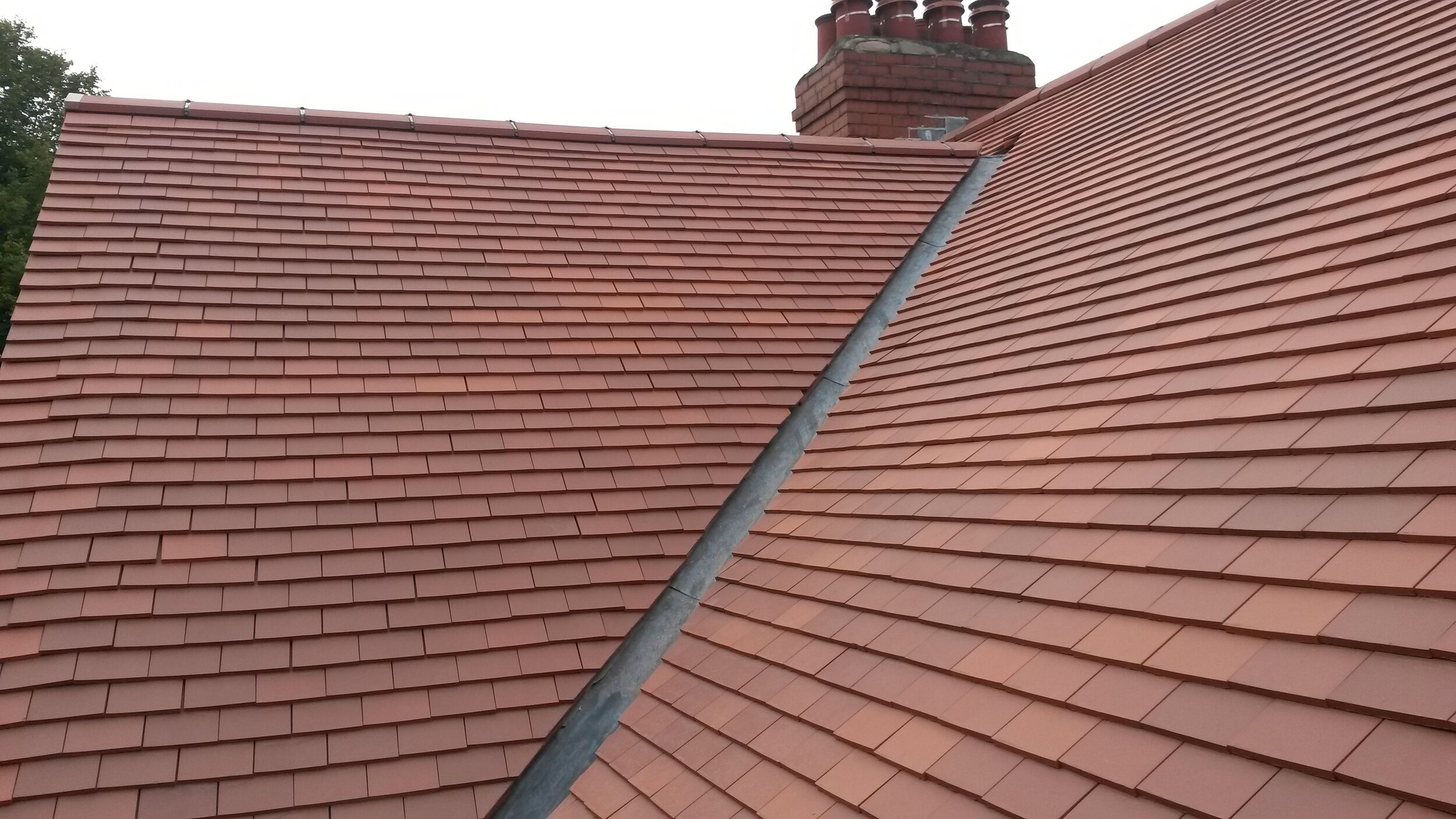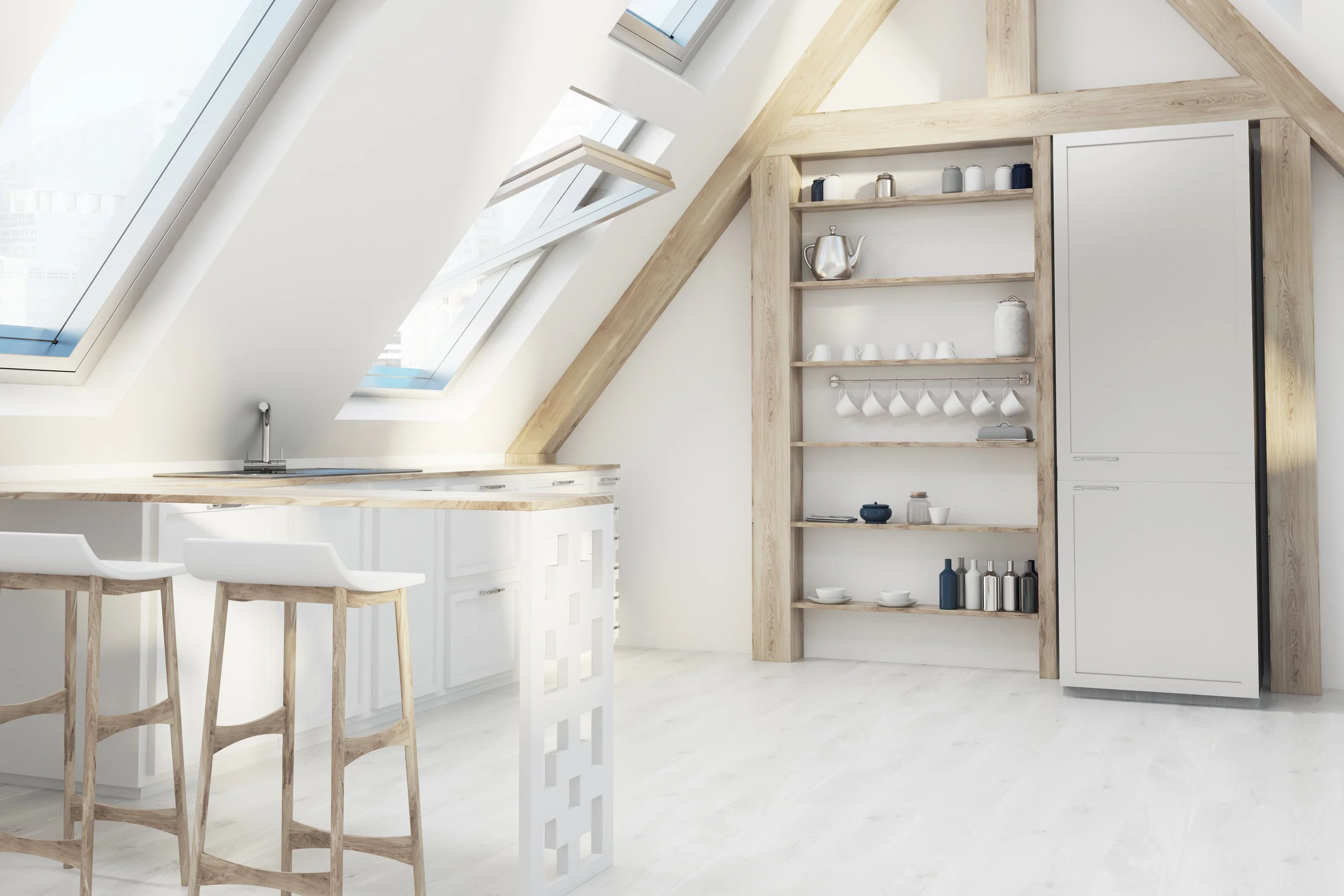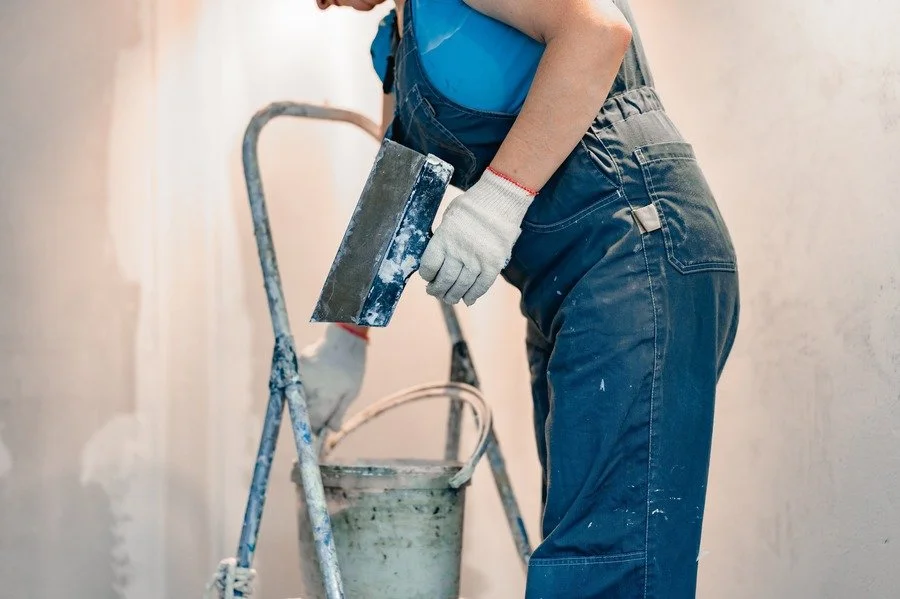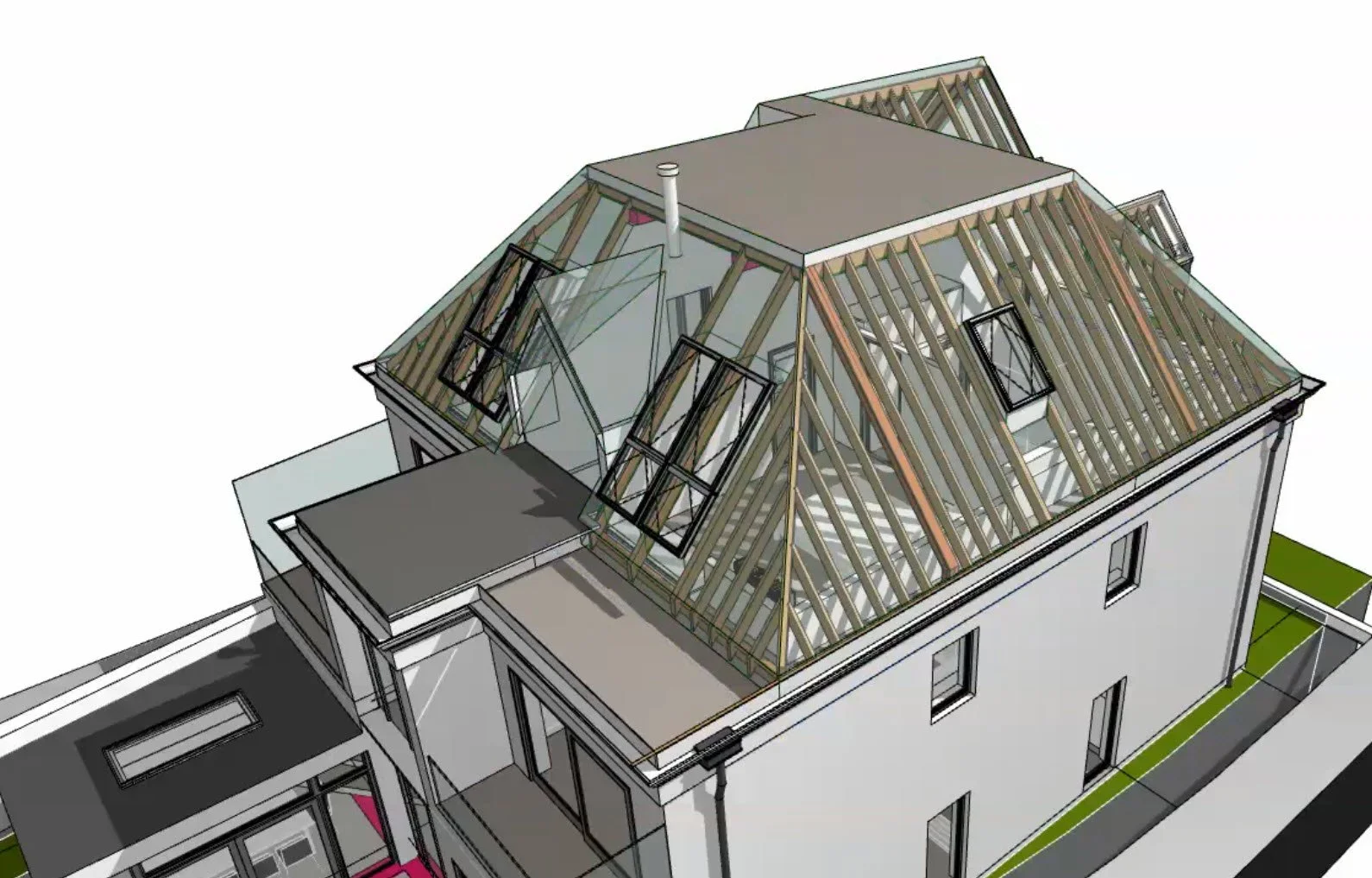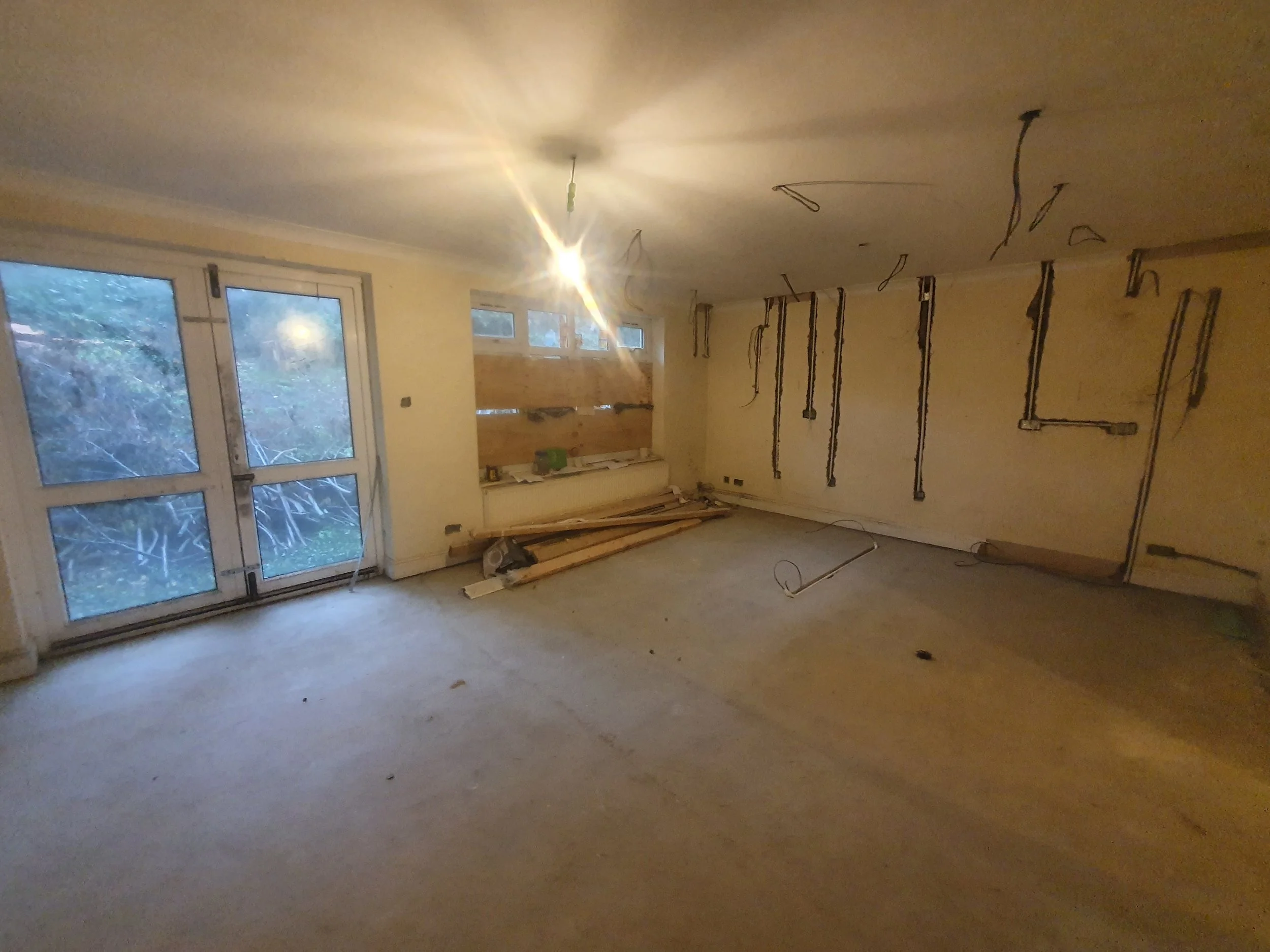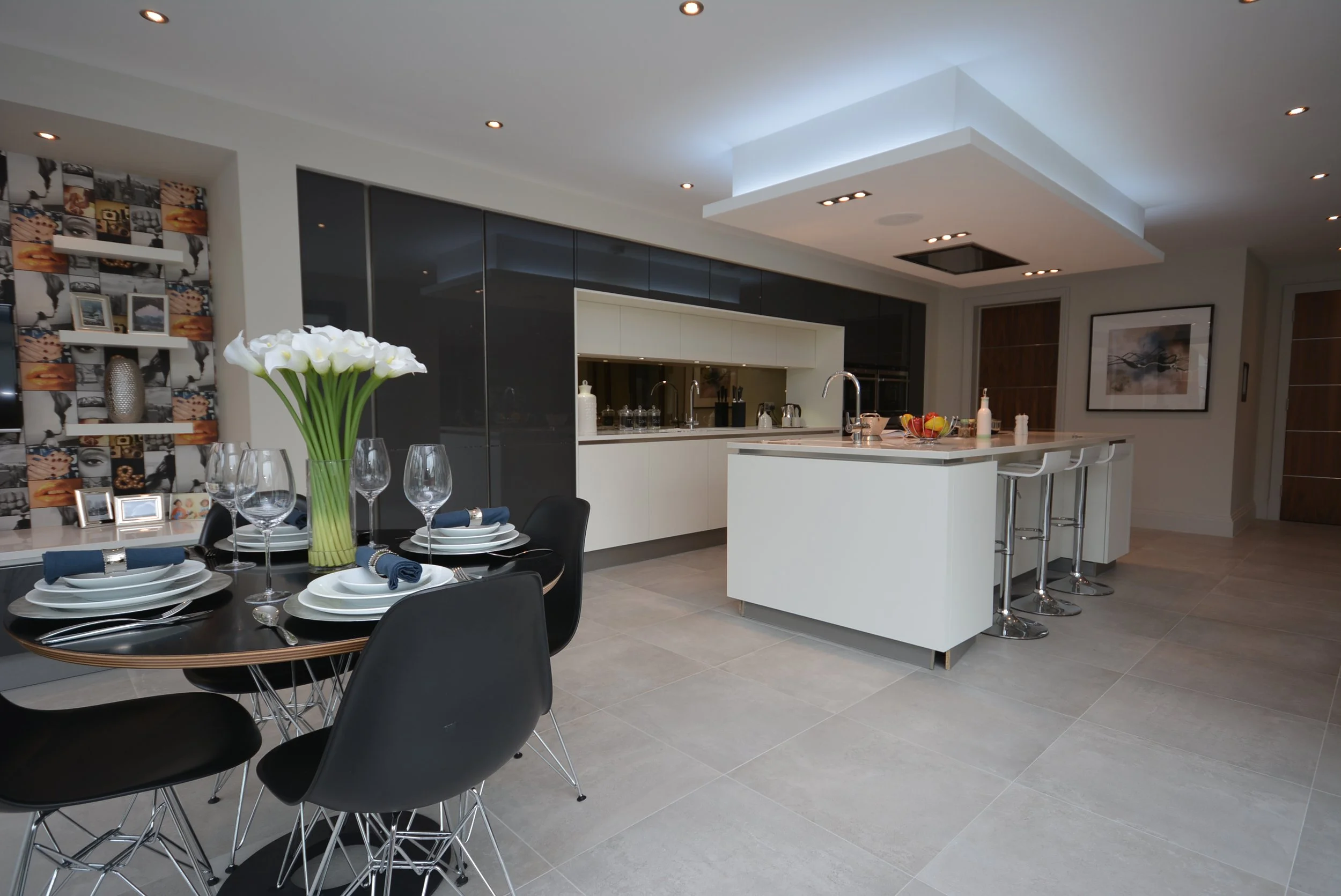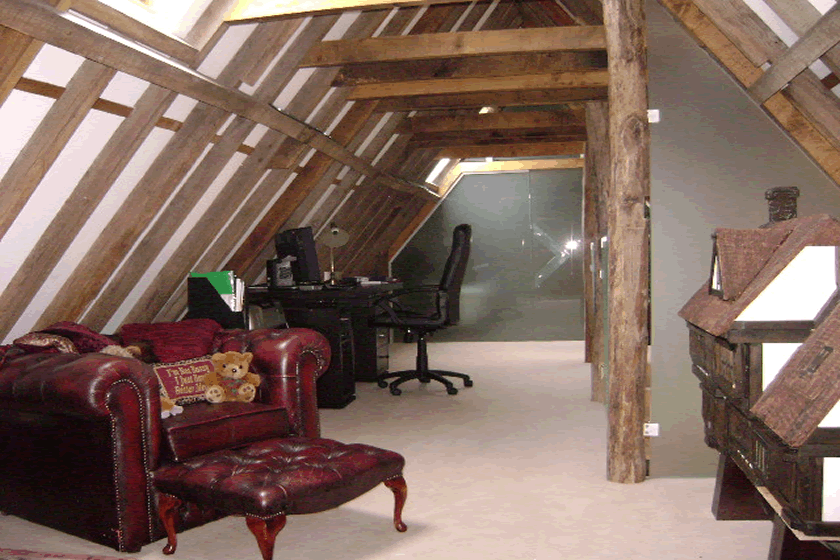PITCHED ROOF COVERINGS: WHAT ARE THE OPTIONS?
In case of a pitched roof, you can choose between many types of roof covering. The most frequently used materials are ceramic roof tiles, slates and reed. In this article, you can read more on the different types of roofings for sloping roofs, together with their prices. Discover other useful info about sloped roofs as well.
Slates
The installation of slates on a pitched roof requires more expertise as compared to roof tiles. The advantage of slates is that they are suited to create many roof shapes. Moreover, they can easily be integrated into the house’s facade.
However, installing a slate roof is more labour-intensive as is the case with roof tiles. For this reason, installation costs may rise high, especially when you use natural slates.
Clay tiles
The beauty of natural clay tiles lies in the way which they retain the natural colour of the clay material before maturing to a darker, richer shade. The degree to which this occurs and the rapidity with which any changes takes place depends upon two factors. The first is the nature of the tile itself, and the second is the environment in which it is laid.
Machine made tiles are extremely dense and durable. Accumulations of extraneous material are slow to take hold and the appearance of the tile is slow to change. The colour of the tile will not fade under any circumstances and the slow change that does take place will be a steady darkening of colour.
Due to the nature of the clay tile production process, slight colour variations are to be expected and actually in many cases enhance the look of the finished roof.
Wienerberger Ltd.
Concrete tiles
The majority of concrete roof tiles manufactured around the world are surface treated. This protects the tile during the early, critical stages of the product’s life.
All concrete tiles are coloured to give them the appropriate appearance and unlike clay tiles, this colour will eventually fade over time. However, manufacturers can take measures to ensure that their concrete tiles are colour-fast, such adding colour throughout body of the tile as well as its surface, then adding an acrylic coating.
This treatment of concrete tiles has a host of benefits such as enhancing the intensity of the tile colours, prolonging the life of the pigment rich tile surface and protecting it from rain water erosion. By adding colour to these products, manufacturers can ensure that the colour is consistent between product batches of tiles and fittings.
Protective coatings for concrete roof tiles also minimise dust, dirt, lichen/ moss contamination, the risk of efflorescence and the effect of scuffing during handling and transportation.
Wienerberger Ltd.
Concrete or Clay?
All these tile formats are available in either concrete or clay. Concrete is always cheaper, usually around 20% less, but it never weathers as well as clay, which tends to improve with age. In contrast, the colour of concrete roof tiles tends to wash out after a few years.
Zinc
It is also possible to finish a sloped roof with zinc. These days, zinc roofs are especially seen on modern houses with a deviating or unique roof construction.
Applying a zinc roof is a job for specialised roofers. In case of a pitched roof, one usually applies the ‘standing seam system’, although zinc can also be applied in the shape of zinc slates.
Zinc-clad new built barn house in Hurstpierpoint, Sussex | Metal Roof Ltd
Thatched roofing
Nowadays, a reed roofing is especially applied on pitched roofs of rural houses. The application of reed is specialised work that must be outsourced to professional thatchers.
As thatching is rather labour-intensive, reed is not one of the cheapest roofing materials. Next to that, a thatched roof requires more maintenance than other types of roofs.





